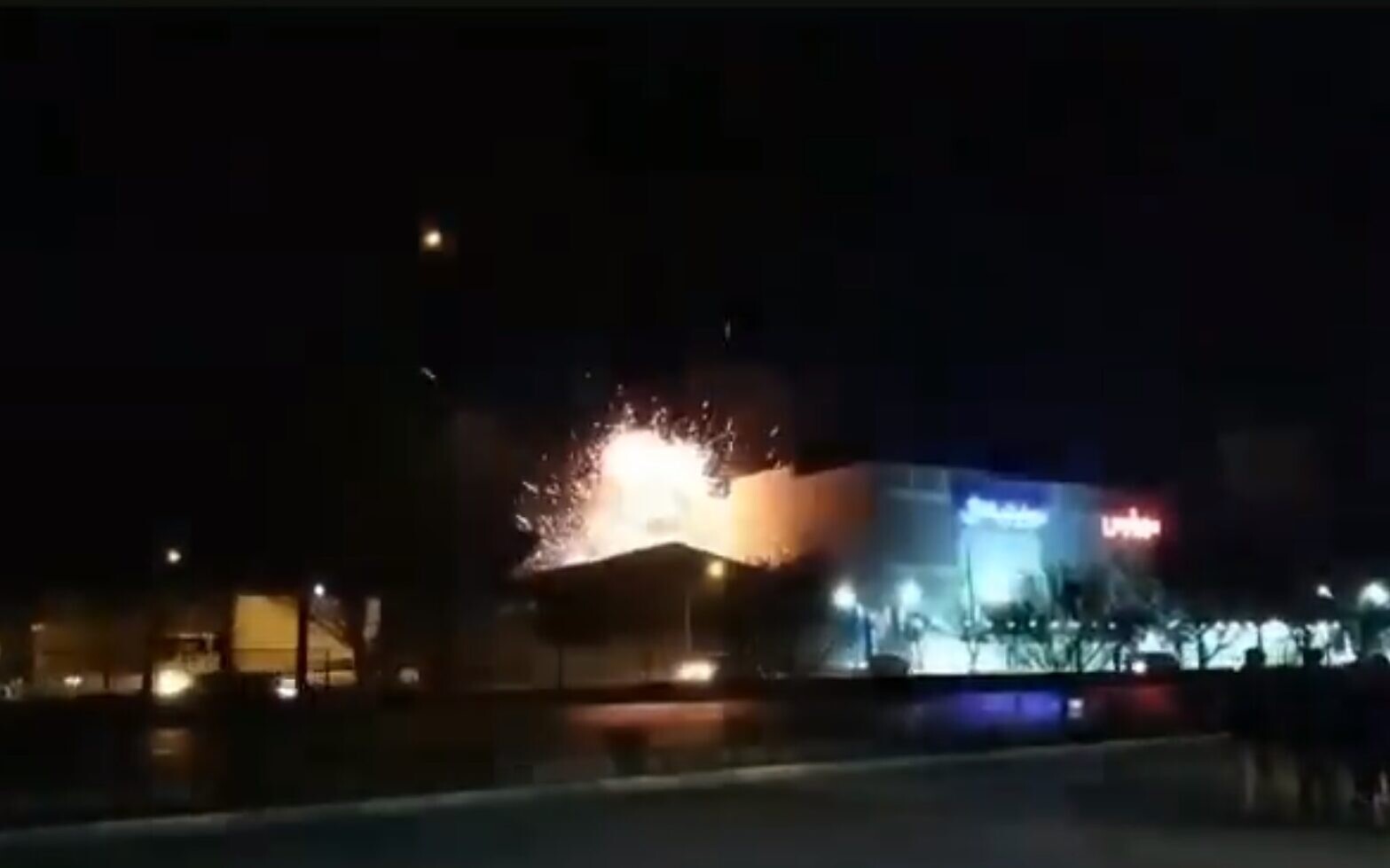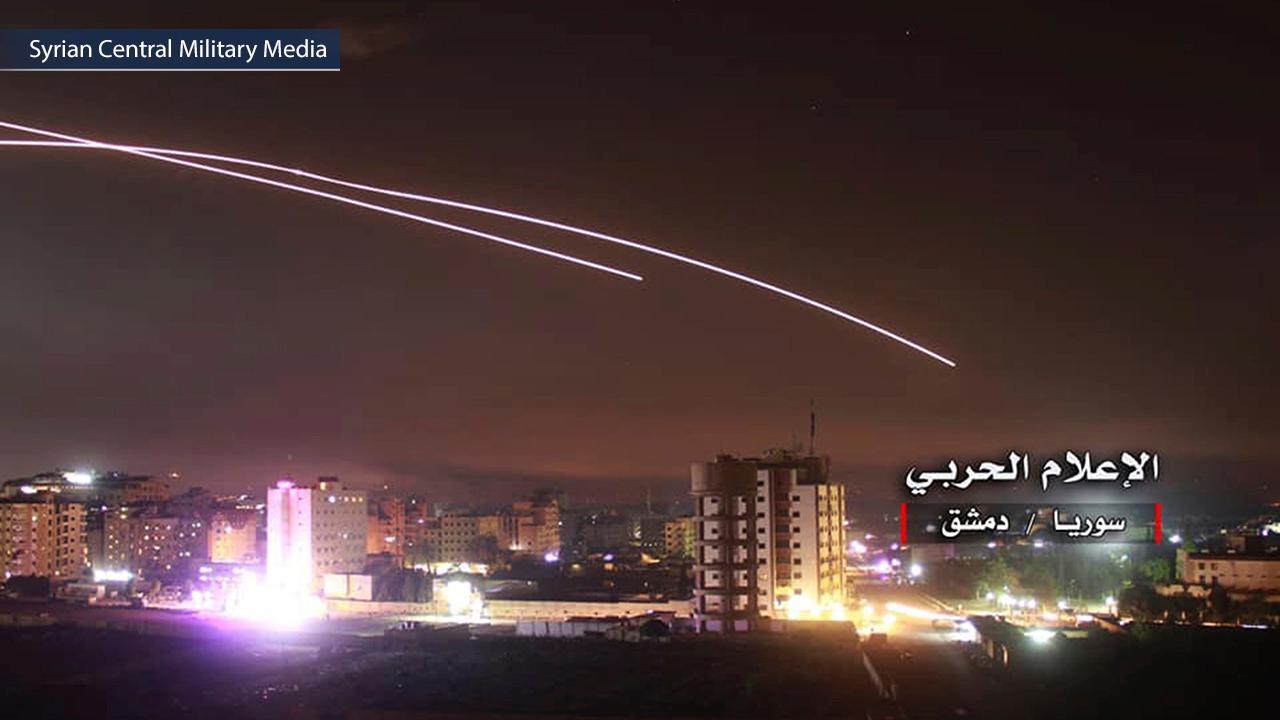Historical Context of Iran-Israel Relations

The relationship between Iran and Israel has been marked by deep-seated antagonism, fueled by a complex interplay of historical, religious, political, and territorial factors. Their shared history stretches back centuries, but the modern conflict finds its roots in the aftermath of World War II and the establishment of the State of Israel in 1948.
The Iranian Revolution and its Impact
The 1979 Iranian Revolution, which saw the overthrow of the Shah and the establishment of an Islamic Republic, was a pivotal event that profoundly shaped the relationship between Iran and Israel. The revolution led to a radical shift in Iran’s foreign policy, characterized by a strong anti-Western and anti-Israel stance. The new Islamic regime viewed Israel as an illegitimate entity, a product of Western colonialism, and a threat to the Palestinian people. The revolution also strengthened the ties between Iran and the Palestinian Liberation Organization (PLO), which had been fighting for an independent Palestinian state.
The Israeli-Palestinian Conflict
The Israeli-Palestinian conflict has been a major source of tension between Iran and Israel. Iran has consistently supported the Palestinian cause, viewing it as a central element of its struggle against Western imperialism and Israeli aggression. Iran has provided financial, military, and political support to Palestinian militant groups, such as Hamas and Islamic Jihad. Israel, on the other hand, has viewed Iran’s support for Palestinian militants as a major threat to its security and has accused Iran of trying to destabilize the region.
Historical Perspectives
Iran’s Perspective
From Iran’s perspective, the conflict with Israel is rooted in the Zionist movement’s historical ambitions to establish a Jewish state in Palestine, which they view as an act of aggression against the Palestinian people. Iran believes that Israel’s existence is illegitimate and that its policies towards the Palestinians are inherently unjust. The Iranian government has repeatedly condemned Israel’s actions in the occupied territories and has called for the establishment of an independent Palestinian state.
Israel’s Perspective
Israel, on the other hand, sees its conflict with Iran as a product of the Iranian regime’s commitment to the destruction of Israel. Israel accuses Iran of sponsoring terrorism, developing nuclear weapons, and threatening its security. Israel’s government has repeatedly stated that it will not allow Iran to develop nuclear weapons and has carried out military strikes against Iranian nuclear facilities.
Military and Strategic Considerations: Iran Attack Israel Israeli

The relationship between Iran and Israel is marked by deep-seated mistrust and a history of proxy conflicts. This has led to the development of sophisticated military capabilities on both sides, each seeking to deter the other and maintain a strategic advantage. Understanding the military postures and strategic considerations of Iran and Israel is crucial for comprehending the potential for escalation and conflict in the region.
Military Capabilities and Strategies
Iran and Israel possess distinct military strengths and weaknesses, reflecting their respective geopolitical contexts and strategic objectives. Iran, with its vast landmass and diverse terrain, relies on a large, conventional military force and a robust missile program. Israel, on the other hand, prioritizes a technologically advanced and highly trained military, emphasizing air power and intelligence capabilities.
Iran’s Military Capabilities
Iran’s military doctrine emphasizes asymmetric warfare and a “defense-in-depth” strategy, aimed at deterring and repelling any potential invasion. The Islamic Revolutionary Guard Corps (IRGC) plays a pivotal role in Iran’s defense strategy, possessing significant capabilities in land, air, and naval warfare.
- Ground Forces: Iran boasts a large ground force with a significant number of personnel and armored vehicles. The IRGC’s Quds Force, responsible for extraterritorial operations, has been involved in supporting proxy groups in the region.
- Air Force: Iran’s air force comprises a mix of modern and aging aircraft, with a focus on defensive capabilities. It possesses a range of fighter jets, including the F-4 Phantom and MiG-29, along with attack helicopters and unmanned aerial vehicles (UAVs).
- Missile Program: Iran has invested heavily in developing a ballistic missile program, capable of striking targets throughout the Middle East. It possesses a wide range of missiles, including short-range, medium-range, and long-range ballistic missiles.
- Cyber Warfare Capabilities: Iran has demonstrated an increasing capability in cyber warfare, targeting critical infrastructure and government institutions.
Israel’s Military Capabilities
Israel’s military doctrine emphasizes preemptive strikes and a focus on rapid response capabilities. The Israel Defense Forces (IDF) are highly trained and technologically advanced, with a strong emphasis on air power and intelligence gathering.
- Air Force: Israel’s air force is considered one of the most powerful in the world, possessing a diverse fleet of fighter jets, including the F-16, F-35, and F-15. It also operates a range of advanced UAVs and helicopters.
- Ground Forces: The IDF’s ground forces are highly trained and well-equipped, with a focus on rapid deployment and maneuverability. They possess a wide range of armored vehicles, artillery systems, and infantry weapons.
- Missile Defense Systems: Israel has developed sophisticated missile defense systems, including the Iron Dome, David’s Sling, and Arrow, to counter ballistic missiles and rockets.
- Cyber Warfare Capabilities: Israel has advanced cyber warfare capabilities, with a focus on disrupting and disabling enemy networks.
Regional Dynamics and International Actors

The Iran-Israel conflict is not confined to the two countries themselves. It is deeply embedded within the complex web of regional dynamics and international interests. Understanding the role of regional actors and the impact of international players is crucial for grasping the nuances of this conflict.
Regional Actors
The conflict has significant implications for regional actors, each with their own motivations and objectives.
- Hezbollah: Lebanon-based Hezbollah, backed by Iran, is a key player in the conflict. It has engaged in numerous armed confrontations with Israel, most notably the 2006 Lebanon War. Hezbollah’s presence along Israel’s northern border poses a significant military threat, and its close ties to Iran provide a conduit for Iranian influence in the region.
- Hamas: The Palestinian Islamist group Hamas, which governs the Gaza Strip, has also engaged in armed conflict with Israel. Hamas receives significant financial and military support from Iran, further solidifying the connection between the two. While Hamas primarily focuses on the Israeli-Palestinian conflict, its alliance with Iran has implications for the broader regional dynamics.
- Syrian Government: The Syrian government, under the leadership of Bashar al-Assad, has historically maintained a complex relationship with both Iran and Israel. While Syria has been a close ally of Iran, it has also engaged in limited diplomatic relations with Israel in the past. The Syrian civil war has significantly altered the dynamics, with Iran playing a crucial role in supporting the Assad regime, thereby increasing its influence in the region.
International Actors
The Iran-Israel conflict has attracted the attention of major international actors, each with their own interests and strategies.
- United States: The United States has long been a key player in the Middle East, with a strong alliance with Israel and a complex relationship with Iran. The US has imposed sanctions on Iran, aimed at curtailing its nuclear program and regional activities. However, the US has also engaged in diplomatic efforts to prevent a wider conflict in the region.
- Russia: Russia has emerged as a significant player in the Middle East, particularly in Syria. While Russia maintains good relations with both Iran and Israel, it has sought to balance its interests, avoiding a direct confrontation between the two. Russia’s influence in Syria has given it a platform to mediate between Iran and Israel, and it has played a role in de-escalating tensions.
- European Union: The European Union has sought to play a role in resolving the Iran-Israel conflict, primarily through diplomatic means. The EU has been involved in negotiations with Iran over its nuclear program and has also supported efforts to promote peace in the Middle East. However, the EU’s ability to influence the conflict is limited by the competing interests of its member states.
Key Players’ Positions and Interests, Iran attack israel israeli
| Player | Position | Interests | Potential Influence |
|---|---|---|---|
| Iran | Seeking regional dominance and challenging Israel’s security. | Maintaining regional influence, countering Israel’s military superiority, and advancing its nuclear program. | Significant influence through its proxies, military support, and economic leverage. |
| Israel | Maintaining its security and preventing Iranian influence in the region. | Preserving its military superiority, deterring Iranian aggression, and protecting its citizens from threats. | Strong military capability, close alliance with the US, and significant economic power. |
| Hezbollah | Supporting Iran’s regional ambitions and challenging Israel’s occupation of Lebanon. | Protecting its interests in Lebanon, gaining political and military influence, and resisting Israeli military actions. | Significant military capabilities and ability to disrupt Israel’s security. |
| Hamas | Seeking an independent Palestinian state and resisting Israeli occupation of the Gaza Strip. | Protecting Palestinian interests, gaining political control over the Gaza Strip, and challenging Israel’s security. | Limited military capabilities but can pose a significant threat through its rocket attacks. |
| Syrian Government | Seeking to maintain its power and preserve its alliance with Iran. | Retaining control of Syria, countering opposition forces, and securing Iranian support. | Limited influence due to the ongoing civil war but can provide a platform for Iranian influence. |
| United States | Supporting Israel’s security and preventing Iranian proliferation of nuclear weapons. | Maintaining its regional influence, ensuring the stability of the Middle East, and protecting its allies. | Significant military and economic power, ability to impose sanctions, and diplomatic influence. |
| Russia | Seeking to maintain its influence in the Middle East and avoid a direct confrontation between Iran and Israel. | Preserving its strategic interests in Syria, maintaining good relations with both Iran and Israel, and preventing a wider conflict. | Significant military capabilities, ability to mediate between Iran and Israel, and influence in Syria. |
| European Union | Seeking to promote peace and stability in the Middle East and prevent a nuclear arms race. | Encouraging dialogue between Iran and Israel, promoting economic cooperation, and ensuring the security of its member states. | Limited military capabilities but can exert diplomatic pressure and provide economic incentives. |
Iran attack israel israeli – The relationship between Iran and Israel has been fraught with tension for decades, fueled by ideological differences and a complex web of regional rivalries. The possibility of an Iranian attack on Israel has been a recurring topic of concern, particularly in light of Iran’s development of ballistic missiles and its support for militant groups in the region.
To understand the dynamics of this potential conflict, it’s crucial to delve into the history of this volatile relationship, which you can explore further by reading iran attack israel. The implications of such an attack, if it were to occur, would have far-reaching consequences for the Middle East and beyond.
The tension between Iran and Israel, a long-standing geopolitical chess game, is once again at the forefront of global attention. While the world watches, it’s easy to forget the everyday lives of individuals caught in the crossfire. A recent trend on TikTok, very mindful very demure tiktok , highlights the importance of finding moments of peace and serenity even in the midst of chaos.
This trend reminds us that amidst the geopolitical maneuvering, there are countless individuals struggling to navigate the complexities of their own lives, seeking solace in quiet moments of self-reflection. The conflict between Iran and Israel, though a source of global anxiety, is ultimately played out on a human scale, reminding us of the importance of individual resilience and the search for inner peace in the face of uncertainty.
